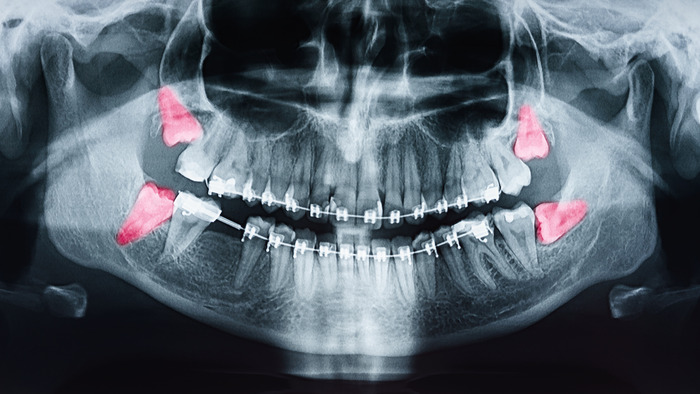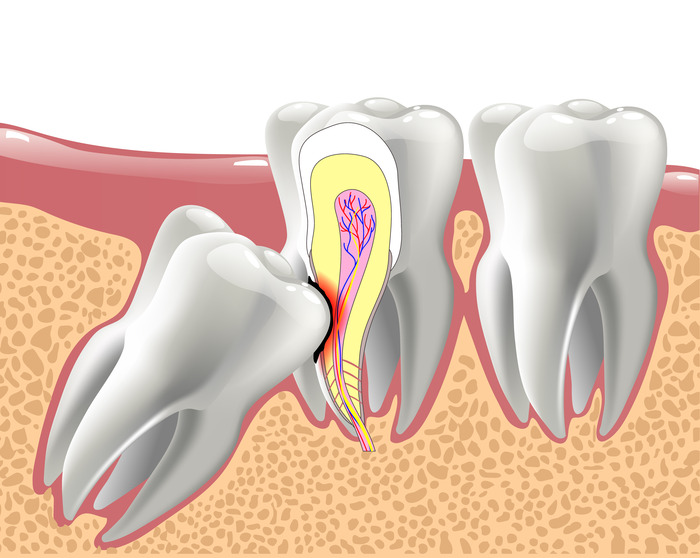
Wisdom teeth are the last adult teeth to come in. When they do finally emerge it can sometimes be an uncomfortable experience. Wisdom teeth typically appear sometime between the ages of 16 and 25. However, roughly 35% of the population never get wisdom teeth and only 60% elect to have them removed. Wisdom teeth don’t serve a specific purpose in the mouth and in certain instances can cause infection or pain if not removed.
Why Do Wisdom Teeth Exist?
Anthropologists believe “wisdom teeth, or the third set of molars, were the evolutionary answer to our ancestor’s early diet of coarse, rough food – like leaves, roots, nuts and meats – which required more chewing power and resulted in excessive wear of the teeth.”
Modern diets consist of softer foods, along with utensils such as forks, spoons, and knives, which has made wisdom teeth unnecessary. Therefore, evolutionary biologists now consider wisdom teeth to be vestigial organs, meaning they are body parts that have become functionless as a result of evolution.

What Are Some Signs That Wisdom Teeth May Be Coming In?
One of the first ways to recognize that your wisdom teeth are coming in would be with a dental X-ray that captures all of the teeth and jaws in one singular image. This type of image can show the position of your wisdom teeth and whether they are close to erupting. However, not everyone is going to get an X-ray every trip they take to the dentist.
Aside from an X-ray, there are other ways to tell if wisdom teeth are coming in. You may start experiencing some of the following symptoms when your wisdom teeth begin to come in:
- Swelling of the gums, often behind your second molars
- Pain in the jaw
- Tender gums or bleeding
- Inability to open your mouth wide
- A bad taste in your mouth
- Unpleasant breath
Much of the pain associated with wisdom teeth arriving is mild, however, you may experience an occasional stab of sharp pain. According to healthline, “it may also be painful or uncomfortable to chew using the molars near where your wisdom teeth are about to come through.” Pay attention to your symptoms and consult your dentist if you suspect an issue with your wisdom teeth.
Should I Get My Wisdom Teeth Removed?
If you are considering removing your wisdom teeth, do it for your level of comfort and health. If you are experiencing uncomfortable signs that your wisdom teeth are beginning to come in, you should consider having them removed as soon as possible. The longer that your wisdom teeth remain, the higher the chance that infection could potentially occur. However, if your wisdom teeth grow in with no pain and your dentist has no concerns about you keeping them, you need not remove them.
At What Stage Should Wisdom Teeth Be Removed?
Wisdom teeth should be removed when they begin to cause problems in your mouth. If you wait to have your teeth removed for a period of time, your potential for infection will increase. The best course of action is to meet with your dentist. Talk to your dentist about extraction as soon as you begin to feel discomfort with your wisdom teeth.
